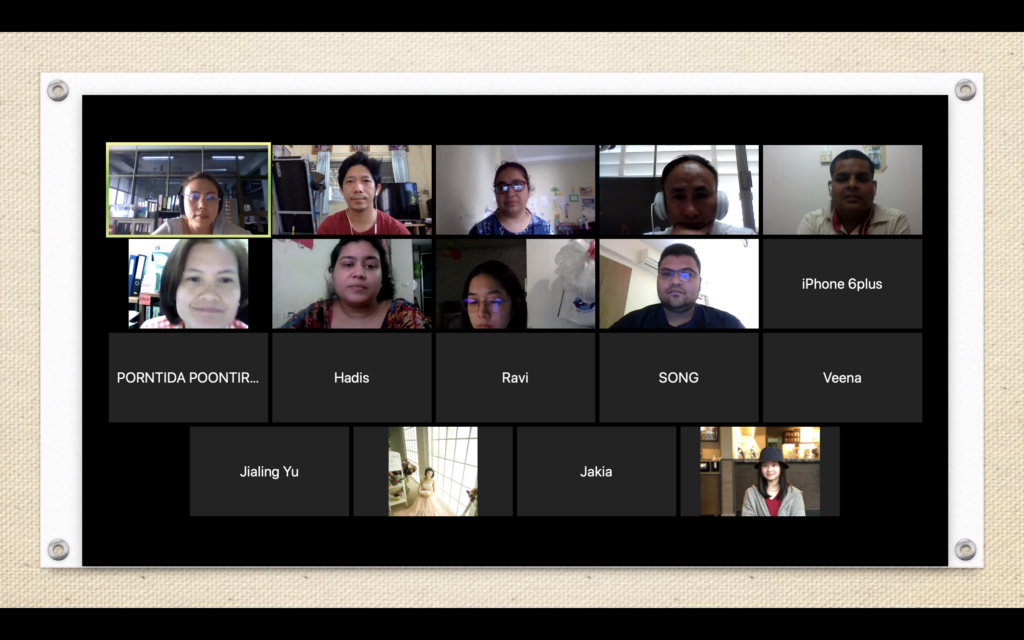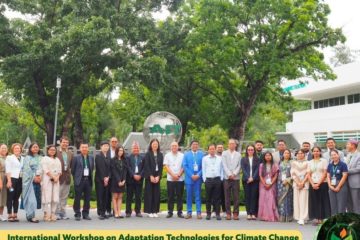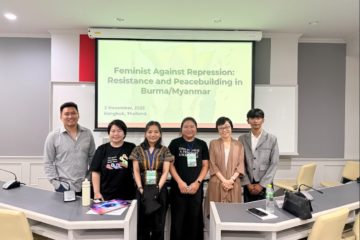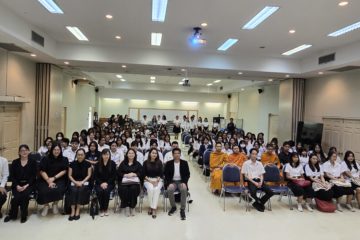PhD Colloquium: Gender Challenges to Climate Change Adaption and Food Security: Evidence from Nepal
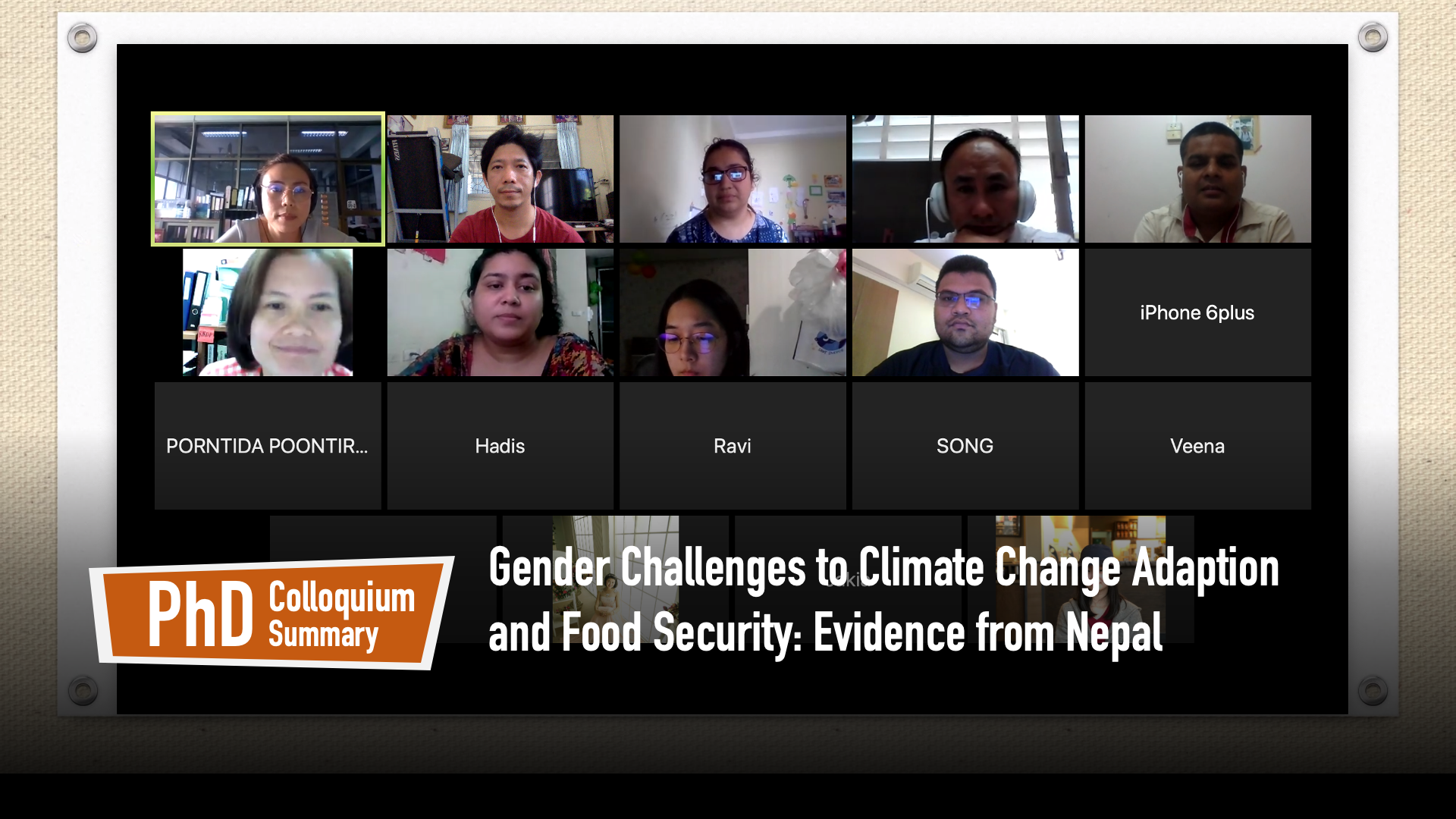
The Department of Development and Sustainability (DDS) organized a Ph.D. colloquium for Ph.D. students on 24 June 2020 as a monthly regular event of the Department. Before the presentation started, Mrs. Wachira Petcho, a Ph.D. candidate as a moderator shared that DDS had already conducted 21 sessions of Ph.D. Colloquium so far since it was started august 2017 as monthly basis. The main objectives of the colloquium to interact with the Ph.D. students under DDS to share their research, findings, experience, challenges, solutions.
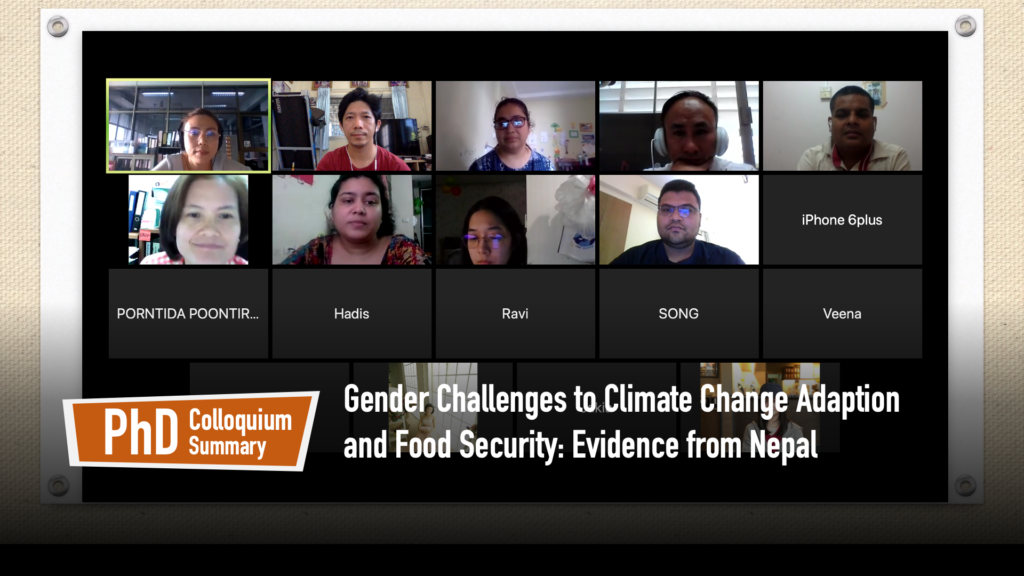
Presenter: Ms. Geeta Bhattrai Bastakoti, Ph.D. student/GDS
Moderator: Mrs. Wachira Petcho, Ph.D. student/RRDP
Date: Wednesday, June 24, 2020
Venue: Zoom
Time: 15:00-16:00 hrs
Due to the Pandemic situation of COVID 19, AIT is following the social distancing and conducting such sessions via online ZOOM. This session was also conducted through ZOOM online platform for presentation and interaction. Around 15 participants from different academic programs attended this colloquium. Ms. Geeta, the presenter of the event, briefly explained the concept of her Ph.D. research on the topic “Gender Challenges to Climate Change Adaption and Food Security: Evidence from Nepal”The objectives of the study were to identify gap in knowledge on food security, climate change, gender relations of adaption, to document differentiated climate change impacts in production, food security concerns for women and men, and to assess gender dynamics and challenges for adaption and resilience women and men farmers. The study was based on field surveys, focus group discussion, and in-depth interviews conducted at 2 districts in Nepal namely Kailali and Rupandehi, which falls under the Tarai belt. The sample size of 196 (101 from Rupandehi and 95 from Kailali). The results of the study indicated that for example, women had the limited opportunity to move and limited access to information than men, and workload of women in agriculture increased their required labor time for all the triple roles.
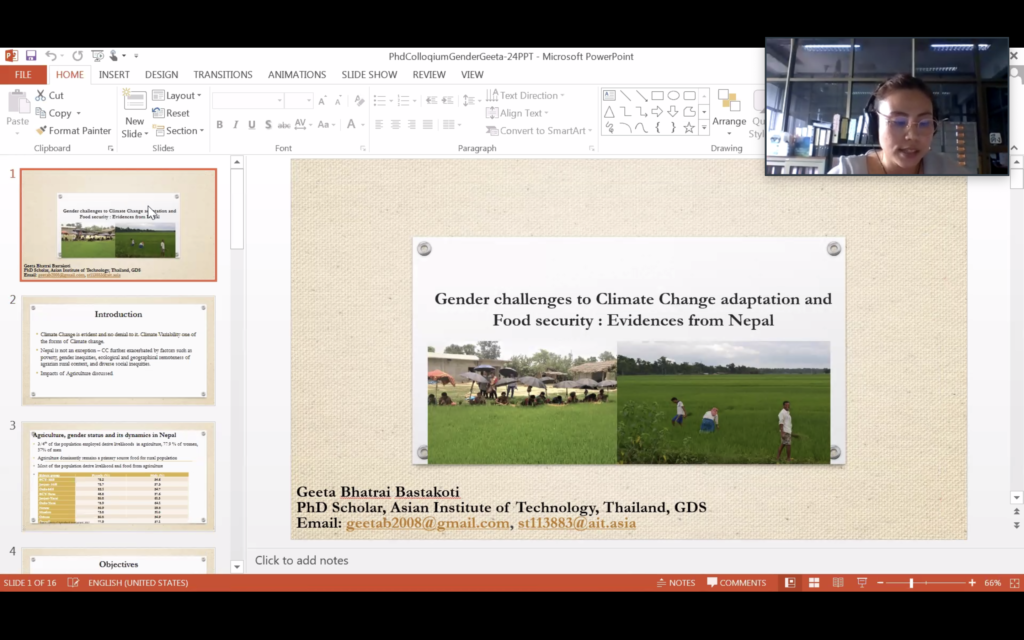
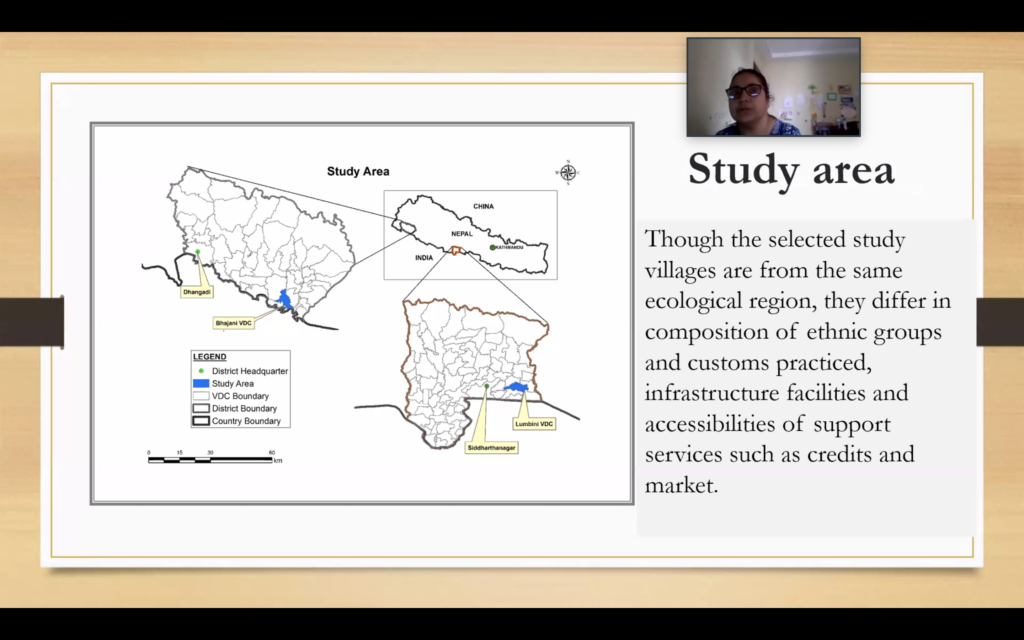
The presentation was followed by an interactive discussion. The following questions were asked:
Who/ what was definition of the women headed household? Was there any difference in terms of gender relations in de facto and de jure household?
The presenter responded the question that
Following the definition of Center Bureau of Statistics of Nepal, men members who have migrated and women managing households are considered women headed household. In this research, there is migration by men for longer duration as well. In that case women are categorized as women headed household. Furthermore, in depth observation, considering challenges there is discrepancy and gaps in terms of gender relations. Women in absence of men manage households but have to inform men for actions, which they do using phone. Before closing the colloquium, the moderator gave the vote for thanks to the presenter, participants, Administrative and technical staff of DDS making the session fruitful.
